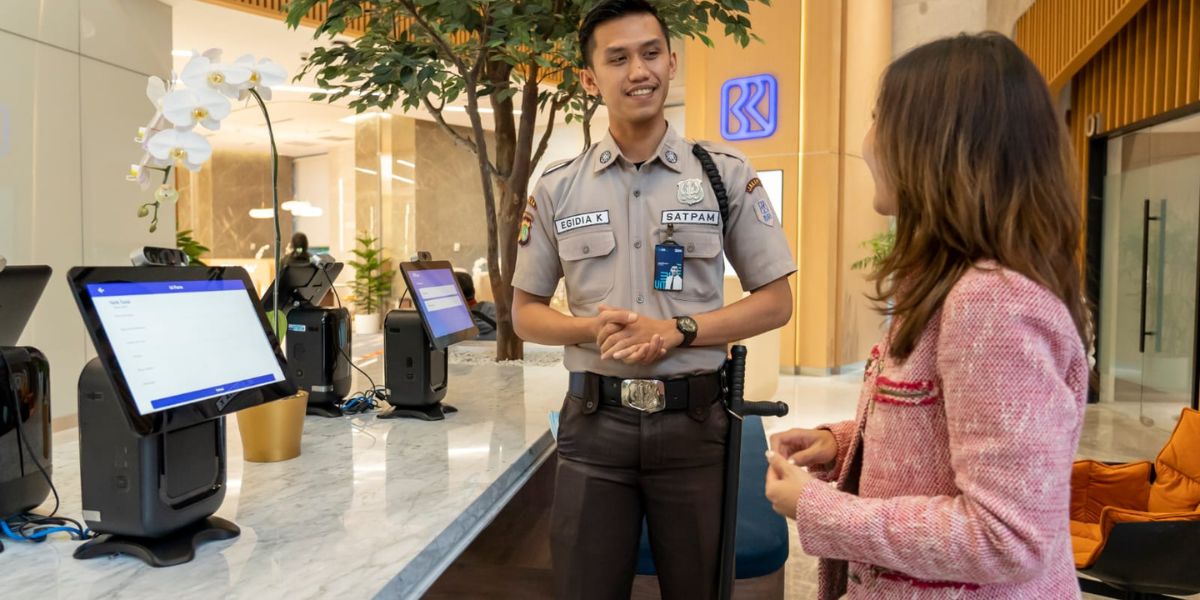Display Lineup of Local Artists, Take a Sneak Peek at the Excitement of Simpedes 2023 People's Party in Yogyakarta
Simpedes 2023 People's Party from BRI is being held again.

Kapanlagi.com - It cannot be denied that the current technological advancements are increasingly showing their influence on life. Not only in terms of the positive aspects, but also the negative ones. This can be seen from the rampant cases of crimes that exploit digital media. It is not surprising that such crimes often cause anxiety in society.
As known, one of the most rampant banking frauds is social engineering or soceng. Soceng itself is a criminal act that manipulates the victim's psychology so that the victim discloses personal data and confidential banking transaction data. The media used by perpetrators to approach victims vary, ranging from telephone, chat, SMS, email, social media, and so on.
Regarding the various modes of banking fraud, PT Bank Rakyat Indonesia (Persero) Tbk or BRI continues to educate its customers to increase their vigilance and avoid all types of banking frauds. As an effort to combat soceng and educate customers, BRI shares various modes of banking crimes, especially social engineering, along with anticipatory steps to deal with it. The modes of fraud/social engineering crimes (soceng) are as follows:
This fraud mode occurs through a request to click on a wedding invitation file in APK format through the WhatsApp (WA) chat application. Through the fake (unofficial) application, the victim consciously gives consent to allow the application to access SMS and other applications on their mobile phone. Crimes can occur because personal and confidential banking transaction data (OTP codes) are sent via SMS. As a result, banking transactions can be successfully carried out.
This mode involves fake accounts on social media claiming to be from BRI. These accounts share advertisements with characteristics such as unusual and non-verified account names, visually untrustworthy appearance including poor image quality, unprofessional writing, suspicious bio links, and if the provided link is clicked, the user will be redirected to register and fill in confidential banking data such as card numbers, PIN, OTP, etc.
Just like the scam mode with APK-formatted files, this type of scam also uses the WhatsApp (WA) platform. The difference is, the file sent is in the form of an announcement/notification for customers to change rates. Usually, the announcement contains threats that make customers anxious/afraid.
Bogus files similar to wedding invitation modes, but this time in the form of an image or picture in APK format. Usually, the perpetrators pretend to be package couriers and give information that the package can be seen after clicking on the APK-formatted file, but it appears as a photo file.
Regarding this matter, BRI Corporate Secretary Agustya Hendy Bernadi revealed that BRI will always provide education on various anticipatory measures to combat soceng.
"Soceng is a criminal act and fraud that can cause unrest and losses. BRI, as a bank that is highly concerned about the security of its customers' transactions, always urges and educates its customers to avoid becoming victims of these criminal modes. Through this campaign, it is hoped that public awareness and vigilance will increase, especially in recognizing soceng modes and practices," he said.
By always maintaining the confidentiality of banking data and being cautious in receiving messages, various soceng scam modes can be easily avoided. BRI will always educate and encourage the public to always be vigilant against new soceng fraud schemes. Some ways to anticipate various schemes are as follows:
1. Be cautious when receiving messages from unknown numbers that include links/files in APK format.
2. Recognize files accompanied by announcements/threats that make you panic, anxious, or scared.
3. Do not click on links/files that are sent.
4. If the file has been clicked and installed, quickly turn off the cellular data and WIFI connections on the device.
5. Clear the data and cache of the application.
6. Uninstall the application.
7. Change the username, PIN, and password of mobile banking, including personal email.
8. It is safer to reset the mobile phone to factory mode.
9. Contact BRI at number 1500017 to report indications of fraud schemes that have occurred.
(kpl/glo)
Cobain For You Page (FYP) Yang kamu suka ada di sini,
lihat isinya
Simpedes 2023 People's Party from BRI is being held again.
Now, for those of you who are wondering what can make parents more hype and cool, here's the answer. What are they?
What are the fun activities inside? Let's take a closer look at the highlight moments!
At least these are 5 achievements and contributions of BRI to the country and the Indonesian society.
Check out the fun of karaoke with Angga and Shenina here!
Does anyone know what they are?
Along with the National UMKM Day on August 12, 2023, PT. Bank Rakyat Indonesia (Persero) Tbk or BRI once again shows its commitment in supporting the development of domestic UMKM.
Because having a private residence can be realized with BRI Mortgage.
This is an annual routine event attended by IPSF delegates from various countries.
Here are some advantages of vidoran Xmart Milk that mothers need to know to support their children to be strong and smart.
So, what are the behaviors being referred to?
Find out more information here!